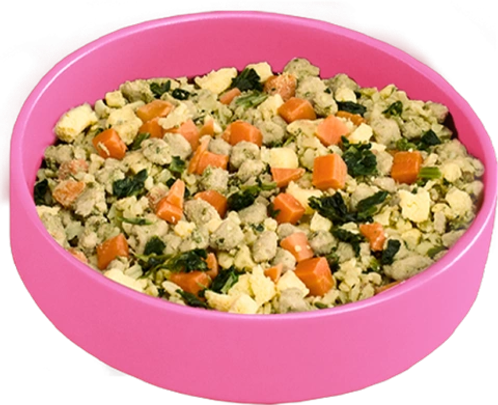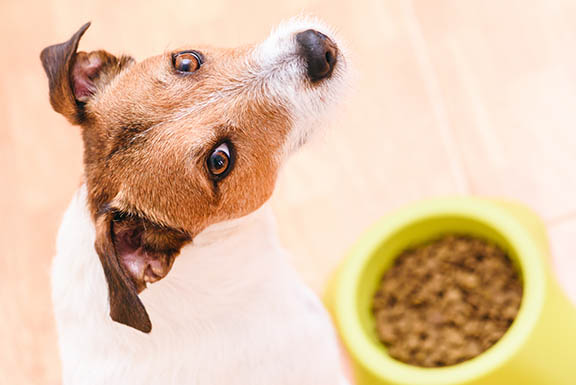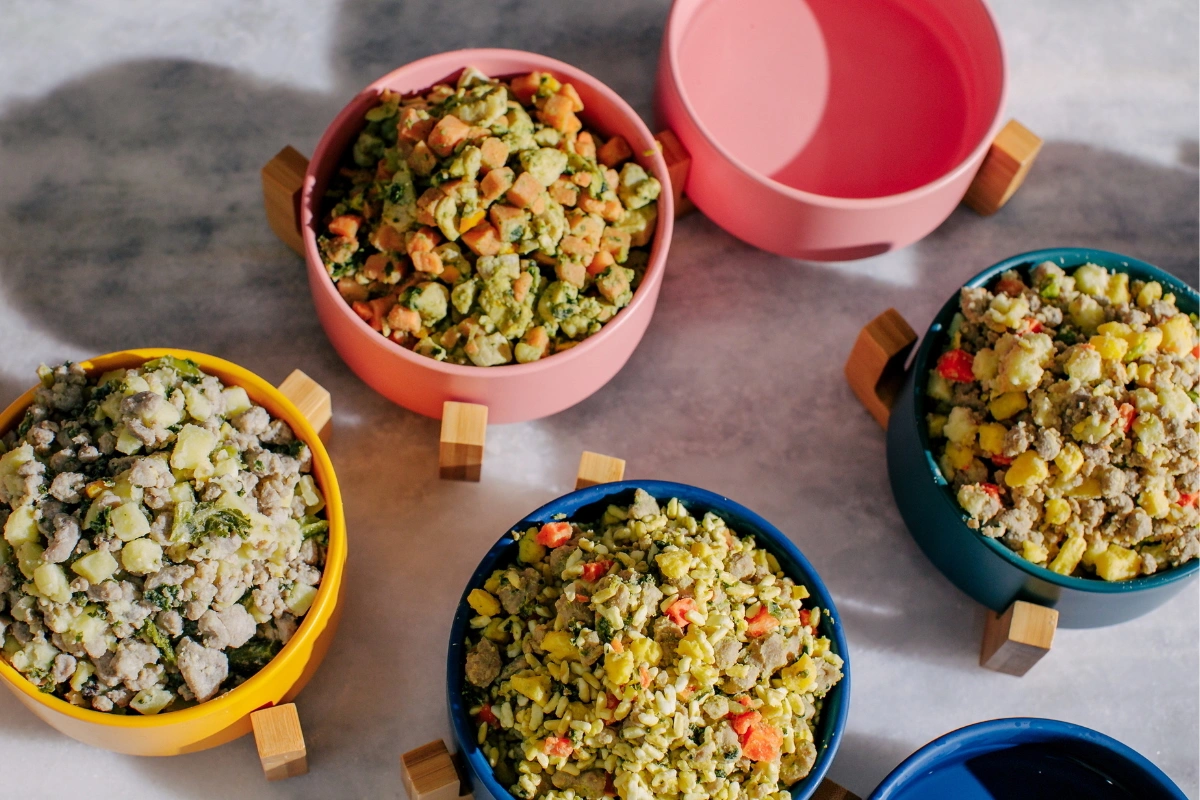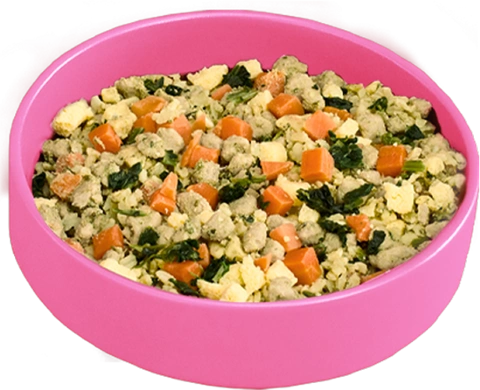If your dog has food allergies, they’re not alone. Many dogs suffer from these allergies, and experience symptoms like skin rashes, itching, ear infections, hot spots, and gastrointestinal issues (no fun for anyone).
In a true dog food allergy, the culprit is often a food protein that triggers an adverse immune response, which then causes cells in the body to release histamines, or compounds that lead to itching and many other allergic signs.
The five most common food sensitivities reported for dogs are beef, dairy, wheat, lamb and chicken. Generally, it’s the protein part of those foods that tend to be problematic, rather than, say, the whole meat itself.
Said another way? The fat found in meats isn’t usually an issue. Veggies can also contain protein, so they’re not automatically safe. The best way to determine what is bothering a dog is through an elimination diet to simplify what your dog is eating and then gradually add individual ingredients back in to see when symptoms resolve and flare back up. Allergy testing can be helpful for environmental (airborne or contact) allergies, but remains unreliable for foods.
Luckily, there are hypoallergenic dog foods made specifically for pups suffering from food allergies. There are two major strategies to these foods: simplified novel ingredient foods or hydrolyzed protein foods.
The first strategy is to include a limited number of ingredients that aren’t common, and which are very simple in the hopes of providing an elimination diet.
They may contain meats such as pork, venison or even kangaroo and often utilize a single carbohydrate source. Of course, what’s new or novel for one dog differs from the next.
The second strategy is to break down proteins, through a process called hydrolysis, into small parts that are too small to be recognized by the immune system and trigger a reduced or no immune response (and therefore fewer allergic symptoms).
Unfortunately, some companies that make limited ingredient dog food make it in large batches in big plants that involve heavy machinery with a lot of nooks and crannies that invite contamination.
Fresh food can be a great option. When you choose a food that’s freshly prepared in small batches with high-quality ingredients and no artificial fillers, you can see exactly what your pup is getting.
You could prepare a homemade recipe for your dog (under close guidance from your veterinarian of course), but that can become very time consuming — if you’d rather not spend so much time preparing your dog’s food, consider a made-from-scratch, small-batch dog food delivery service that emphasizes quality and purity.
Switching to a fresh diet
For dogs with food allergies, switching to a fresh diet — particularly one formulated by experienced board-certified veterinary nutritionists — is an excellent choice.
Many pet parents report that a change to a fresh diet solved or reduced their pet’s allergy problems. They also comment that their dog’s skin and coat look better after switching to fresh food, in addition to their dog having more energy and maintaining a healthy weight. This may be because a food allergen was removed or because the fresh diet contained nutrients helpful for controlling environmental allergies (allergy to pollens, dust mites, grasses, etc.).
At Nom Nom, our recipes are all prepared fresh with whole ingredients and no artificial ingredients or fillers. They are carefully balanced with the right amount of protein to help maintain muscle mass and strength and to support all the essential functions of the body. All of our fresh dog food recipes also include healthy oils, such as fish oil or sunflower oil, to promote healthy skin and combat allergies.
A fresh diet has the potential to make a world of difference in your pet’s health. Many of our customers whose pets suffer from food allergies have seen great success with Nom Nom. You can read some of their stories here:
“His allergies have cleared up, his itchy belly has gone away. His stools are smaller and the diarrhea is gone. I think he’s calmer and happier now that he’s not itching, too.”
“The difference is amazing. He does not lick his paws anymore and he can hardly wait for the next meal. Not only is he not biting his paws but he LOVES his food!!”
“The change was immediate. He’s 1000% better. I think that the right approach is to go to the source of the problem. If a dog has allergies, don’t just treat the side effects. Treating it as a systemic whole is better in the long run. And you end up saving money as far as vet bills and the impact and wear and tear on your dog.”
_***__
_If your pet is suffering from food allergies, make sure to speak with your vet.



